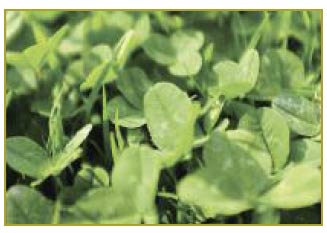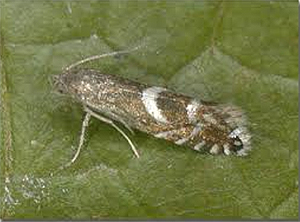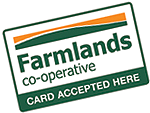 |
|
|
|
Issue 54 / Winter / August 2014
Hi #subname#
 Welcome to the August edition of Specialty Seed's SeedData Newsletter.
Welcome to the August edition of Specialty Seed's SeedData Newsletter.
We trust you are all well and getting over the worst that winter has thrown at us thus far.
For many the winter has come on the back of a very wet Autumn and it seems we only need a small amount of rain and we have very wet soil conditions again. Let's hope it all goes well for the Spring!
I'm happy to report that I'm writing this newsletter from the office in our new warehouse. In this edition we talk about the new building, look at an exciting new clover, and report on yet another potential pasture pest.
This month we will cover the following topics:

Specialty Seed's new building update
It's great to finally be in our new building. It is not 100% complete but it will certainly will be up and running by the end of August.
In case you missed our previous notices, Specialty Seeds new processing and storage facility is now located at: 10 Centrum Lane, Izone Industrial Park, Rolleston just south of Christchurch.
The new purpose build store is about half as big again as our old one. Our larger office space, along with the addition of our freshly installed new machinery, gives us, double the capacity for mixing and treating that the old building did.
We see it as a very positive step for our future business development and the primary driver for this investment was to provide our clients with even better service.
As far as our clients are concerned, only our physical location has changed. All of our other contact details remain the same. As always we certainly encourage any of our clients who are passing by to pop in, have a look around and grab a cuppa.
Contact Link: Contact Specialty Seeds for more information.
Back to top

New product - 'Aberlasting' white clover

Over the last four years I've been keeping an eye on a white clover plant breeding project at IBERS, Aberystwyth University, UK.
The aim of this project is to breed white clovers that are better able to cope with potential climate change scenarios.
A major part of this breeding program has been the development of hybrids between white clover and Caucasian clover.
The new cultivars are clover-like in appearance and combine the agronomic performance of white clover with the drought tolerance, large leaf size and better persistence. These traits are typical of Caucasian clover and breeding selection comparing different management systems.
The first commercially available cultivar from this program is called "Aberlasting". Aberlasting white clover has the following characteristics:
- small - medium leaved white clover
- proven drought tolerant rhizomatous roots
- nitrogen-fixing benefits of white clover
- persistent even in clover root weevil areas
Aberlasting will be available in small quantities this coming Spring with more coming on stream as seed production ramps up.
Contact Link: Contact Specialty Seeds if you have any questions on Aberlasting white clover.

Pest Alert: Cocksfoot moth (Glyphipterix simpliciella)

Cocksfoot moth was first reported to Ministry for Primary Industries (MPI) on the 11th of June 2014.
Currently only three specimens are known; a sample collected from Auckland in 2011, a sample collected from Hawke's Bay in 2000 and a specimen in a photograph taken recently in Whangarei.
This indicates a wide distribution in the North Island. There have been no reports of the moth from the South Island to date.
Cocksfoot moth is a very small (wingspan 8 mm) and cryptic moth. It may have been present but undetected in New Zealand for many decades. The pathway of entry is unknown but introduction may date from the period when cocksfoot hay was imported, (1920s), or from the period when raw seed mixes were imported for mass sowing of pastures after bush clearance.
Based upon cocksfoot moth's known distribution (Northland, Auckland and Hawke's Bay), its presence in New Zealand for 14+ years and the likelihood that the moth is much further distributed, the Ministry of Primary Industries has concluded that eradication is not feasible.
The Ministry considers the most effective management option is for those landowners and managers who have concerns about the effect the moth may have on their seed crops or pastures to manage the moth as part of their normal pest management operations, as and if required.
For more information on the Cocksfoot moth or for suspected incidences of it please either contact Specialty Seeds or Anna Rathe from the Ministry for Primary Industries using the following information below:
- Anna Rathe
- Ministry for Primary Industries
- Telephone:+ 64-4-894 3450
- Facsimile: +64-4-894 0736
- Web: www.mpi.govt.nz
Contact Link: Contact Specialty Seeds with any pasture pest questions.

 As always, we hope this issue has been of some value to you. If you have a comment on this newsletter or anything on our website, please give us a call on our Freephone: 0800 727 8873, send us an email at: mail@specseed.co.nz.
Kind Regards

Stephen Finch & David Percival
Specialty Seeds - New Zealand
|
|
|
|
 |
|
|

|
If you are having trouble viewing this email, .
If you would like to be removed from this newsletter please click here to
|
